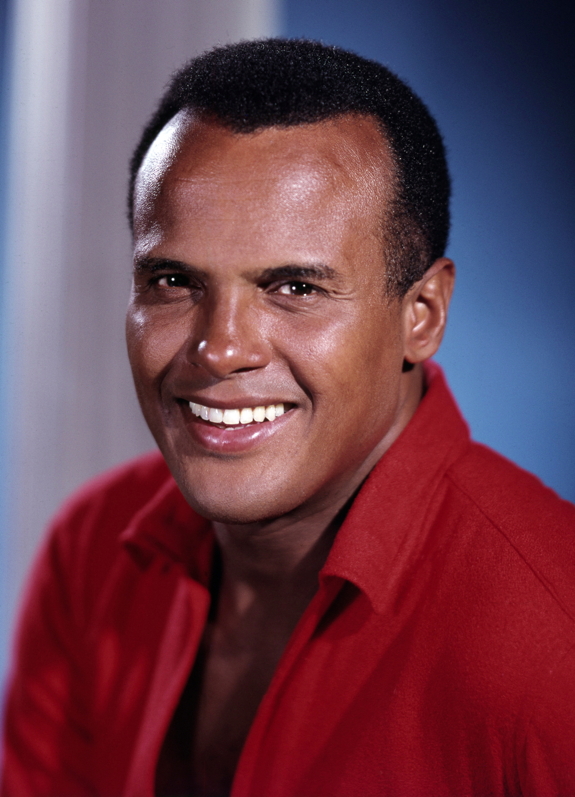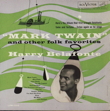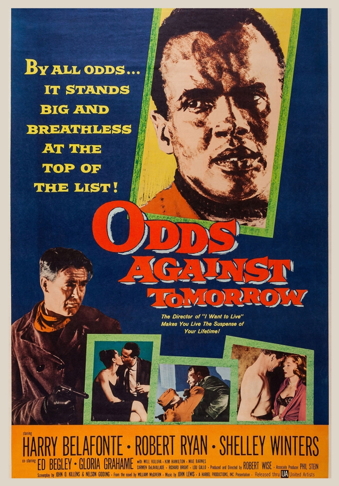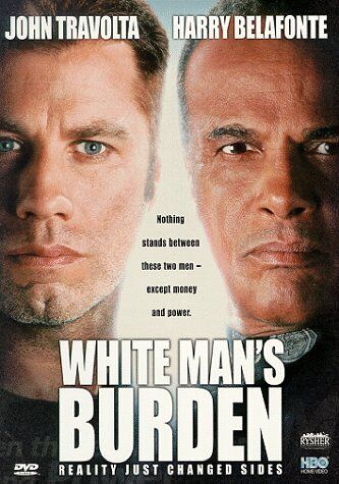
March 1, 1927 - April 25, 2023
Belafonte is one of the few entertainers to have received
an Emmy, Grammy, Oscar, and Tony (EGOT).
Harry Belafonte - La Bamba (Live)
Sankei Hall, Tokyo, 18 July 1960
"Buck and the Preacher" 1972
During the 1950s, Harry Belafonte (with 6 albums) was second only to Frank Sinatra with the most albums in Billboard's Top 100. Sinatra had 10 albums in the Top 100. Johnny Mathis was ranked #3, and Elvis was ranked #6 with only 5 albums to reach the Top 100.
"Callypso" went straight to the top of the charts, reaching #16, and remained there for 31 weeks, and ultimately stayed on the charts for 99 weeks and became the 9th highest-selling album by a solo artist during the era!
Belafonte had the second most number of albums
to chart (by aggregate score of album position) in
Billboard's Top 100 albums during the 1950s
CLICK ANY IMAGE BELOW TO ENLARGE "Calypso"
Charted #16"Belafonte"
Charted #24"An Evening With"
Charted #34"At Carnegie Hall"
Charted #38"Sings of the Caribbean"
Charted #85"Mark Twain and Other Folk Favorites"
Charted #87
Belafonte's films range from "A-List" Hollywood epics such as "Carmen Jones (1954)" and "Island in the Sun (1957)" to culturally popular favorites such as "Buck and the Preacher (1972)" and "Uptown Saturday Nnight (1974)." However, Belafonte was also known for taking risks and supporting worthy projects, as presented below, that prompt critical thinking and social awareness.
The World, The Flesh, and The Devil (1959) Odds Against Tomorrow
(1959)
White Man's Burden
(1995)
For film info, click the poster above.
Watch the trailer below
For film info, click the poster above.
Watch the trailer below
For film info, click the poster above.
Watch the trailer below
This dystopian science fiction film accurately captured the emptiness, reality, and the perpetual role of racial discrimination (the "world" of Belafonte), sexual discrimination (the "flesh" of Inger Stevens), and the inherent and universal privilege of the "devil" (Ferrer) to have it all.
Belafonte did not consider the Hollywood approved "mainsteam" film, "The Defiant Ones," as socially accurate or relevant. So, in response, Belafonte personally produced this film with much sharper and realistic racial overtones.
Some might consider this a dystopian science fiction, because although the subject of the film is not unique, the "racial roles" are reversed. In this film, the United States is a nation where White people are the minority, and Black people are the majority.Commitment to Civil Rights It's important to acknowledge the career of Harry Belafonte, because despite his lifetime commitment to equality and civil rights for "everyone," nevertheless, "things" have not really changed, as researched and reported in the New York Times, "Faces of Power: 80% Are White, Even as U.S. Becomes More Diverse."
As validated by private sector EEO-1 reports, public sector EEO-4 reports, and the perpetual existence of the "Glass Ceiling," it remains the business-as-usual practice of White-owned and controlled public and private sector employers to strategically place a few "token" minorities, women, and LGBT+ individuals in a select executive management and senior management positions. The current "media practice" is to place interracial couples in stereotypical roles in music, film, television, and especially in advertising commercials. Statistically, nothing much has actually changed. Even worse, as researched by Derenoncourt, Chi Hyun Kim, Kuhn, and Schularick in their March 8, 2021 report, “The Racial Wealth Gap, 1860 - 2020,” the wealth gap between Blacks and Whites has never been abated, has only increased significantly; and if present trends in the data continue, the racial wealth gap is headed to a steady state with average White wealth at least five times greater than average Black wealth - even through 2260!
I vividly remember watching, "The World, The Flesh, and The Devil," during its original release in 1959. Given that this dystopian science fiction film eliminated the bulk of humanity, I was . . . disappointed . . . Belafonte didn't "get the girl and live happily ever after." Then, fifty-eight-(58) years later, "The Mountain Between Us," is released which essentially covers the same ground.
So, it's important to acknowledge the career of Harry Belafonte, and recognize there's much unfinished business.
Get it?
I welcome your feedback.
Trip Reynolds
trip.reynolds@yahoo.com
![]()
 |
Reynolds' Rap First Amendment to the United States Constitution - Congress shall make no law respecting an establishment of religion, or prohibiting the free exercise thereof; or abridging the freedom of speech, or of the press; or the right of the people peaceably to assemble, and to petition the Government for a redress of grievances. |











